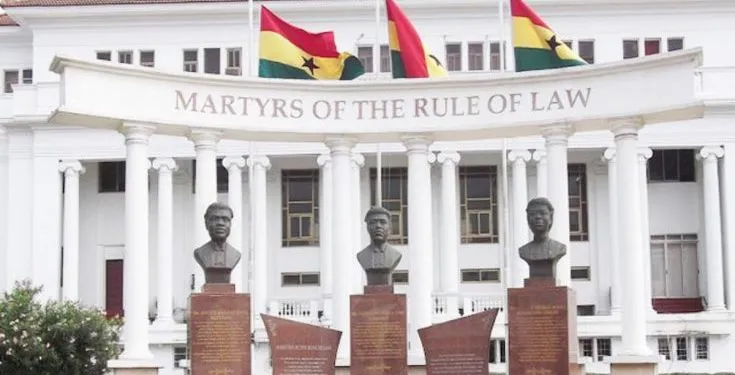Chiefs Endorsing Candidates And Political Parties Unconstitutional – Supreme Court

The Supreme Court has in a unanimous decision declared that it is unconstitutional for chiefs to endorse candidates or their party.
The court, however, pointed out that chiefs praising or lauding the policy of a candidate is a permissible endorsement.
Justice Emmanuel Yonny Kulendi who authored the November 2022 Judgment of the court explains that this conclusion is “consistent with the role of a Chief as a champion and an advocate for the welfare and interests of their communities”.
He nonetheless stated that other statements where a Chief is heard to endorse the person of the candidate or his party by declaring their preferential support for the election of the candidate or his party or urging voters to vote for them are the kind of “taking sides” in a partisan political contest which the constitution disapproves of.
This is the Apex Court’s decision in a case filed by legal practitioner Elorm Kwame Gorni against the Attorney General.
It was heard by Justices Jones Dotse, Gabriel Pwamang, Nene Amegatcher, Prof Ashie Kotey, Mariama Owusu, Lovelace Johnson and Emmanuel Yonny Kulendi.
Mr Gorni had urged the apex court to interpret “active party politics” as used in Article 276(1) of Ghana’s constitution. This provision states;
“A chief shall not take part in active party politics, and any chief wishing to do so and seeking election to Parliament shall abdicate his stool or skin.“
He wanted the court to declare that certain chiefs who during the electioneering campaign leading up to the 2020 General Elections “endorsed” either the NPP’s Nana Akufo-Addo or the NDC’s John Dramani Mahama were engaged in active party politics. He argued such an endorsement was a breach of the Constitution.
The Attorney General took the view that the case raises no issue requiring the interpretation of the court.
He pointed out that the word “active” is “clear, unambiguous and admits of no interpretation”.
The AG further pointed out that a chief’s endorsement of a candidate for “elective political office without more cannot be said to constitute an engagement in active party politics”.
He insisted chiefs like every citizen have the right to freedom of speech and expression as well as the freedom of thought, conscience and belief.
The Supreme Court however took the view that the phrase “active party politics” raises and presents an issue worth interpreting.
Justice Kulendi explained that it was important for “the exact contours or boundaries of what constitutes such participation” to be determined.
On the substantive issue of chiefs and politics, Justice Kulendi said chiefs occupy an elevated position in the social order and play an influential role in the governance and development of their communities and the country.
“It is on account of the exceptional social and public status of chiefs that although chiefs are not public officers, the constitution disqualifies certain persons, notably persons convicted of offences involving fraud, dishonesty or moral turpitude from being chiefs.
“It is the same heightened concern with preserving and protecting the dignity of the chief’s office that partly underpins Article 276(1)’s banning of chiefs from taking part in active party politics.”
He continued that chiefs are not barred from expressing their opinions about matters that are the subject of public debate and discussion.
This he added strikes the right balance between the rights of Chiefs, the reasonable expectations associated with their role and the public interest concerns that animated the said constitutional provision.
Mr Gormi attached various statements made by some chiefs to his court documents.

